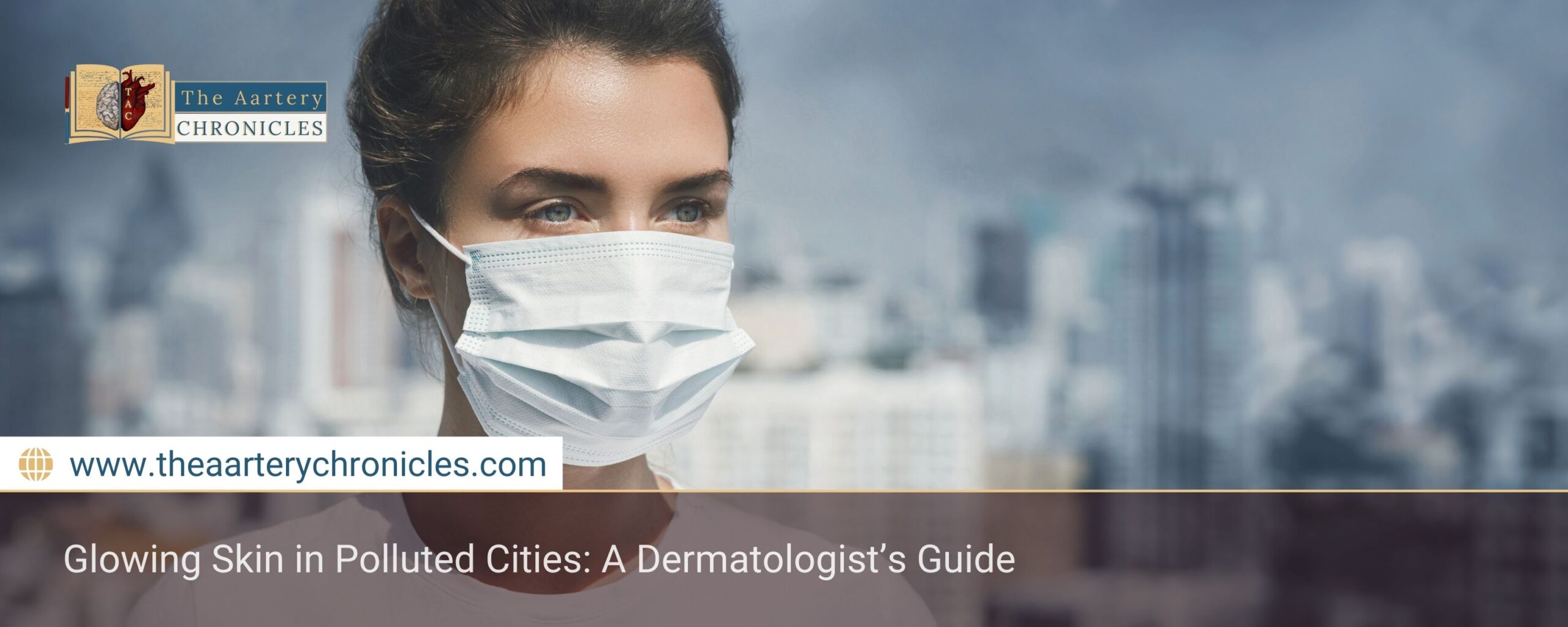
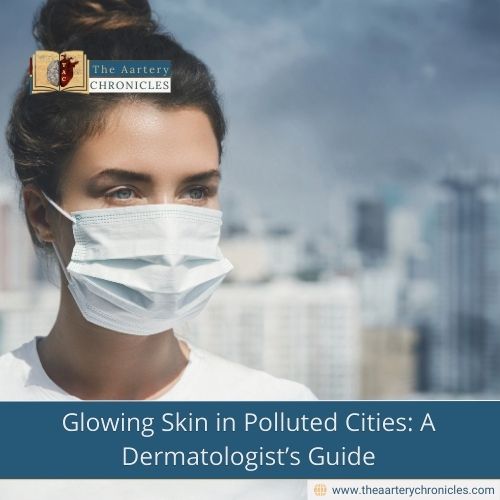
How to Protect Your Skin from Pollution and UV Rays
Summary: This article shares essential tips for maintaining healthy, glowing skin despite the city’s polluted air. The best way to prevent premature aging is by using skincare products rich in antioxidants and hyaluronic acid. Staying hydrated by drinking plenty of water also supports skin health. Ignoring these steps can make your skin more vulnerable to UV damage, which may increase the risk of skin cancer. That’s why starting a proper skincare routine is crucial.
Introduction
Did you know city air can age your skin faster than time?
Our skin is the first barrier against the external environment, yet in recent years, rising air pollution has taken a severe toll. It accelerates skin ageing, even in young people.
- Studies reveal that exposure to nitrogen dioxide (NO₂) increases the risk of facial pigmentation spots.
- Genetics also influence how quickly your skin ages.
This article shares dermatologist-approved tips to keep your skin smooth and glowing, even in polluted environments, with a simple daily routine.
5 Tips to Maintain Healthy, Glowing Skin in Polluted Cities
1. Topical Antioxidants
Air pollution produces free radicals, unstable molecules that damage skin cells, leading to
- Wrinkles
- Pigmentation
- Loss of elasticity
Antioxidants fight these harmful molecules and repair the skin.
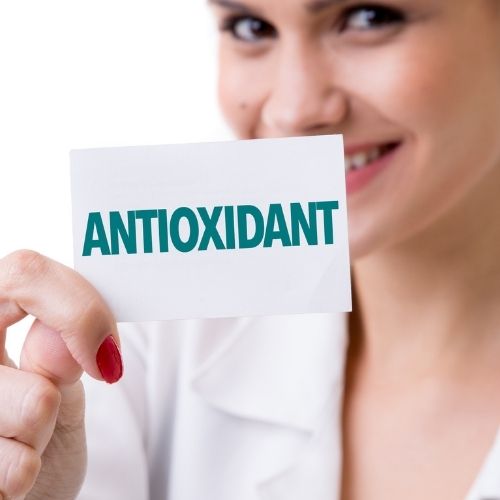
Here’s how each one helps:
Vitamin C & E: These two work best together. They neutralise free radicals, reduce inflammation, brighten the skin, and help repair damaged cells.
Vitamin A (Retinol): Speeds up cell regeneration, smooths fine lines, and maintains skin structure.
Green Tea Extract: Packed with polyphenols, it calms inflammation, fights irritation, and even reduces the risk of skin cancer.
Coenzyme Q10: A natural antioxidant that energises skin cells and supports repair at the cellular level.
Resveratrol: Found in grapes and berries, it strengthens the skin’s defence system and protects against oxidative stress caused by pollution.
Selenium: An essential mineral that helps prevent cell damage and supports overall skin health.
Using antioxidant-rich creams or serums every day helps your skin fight the oxidative stress caused by urban pollution and slows down visible ageing.
2. Sunscreen for UV Protection
Pollution already stresses your skin, but UV rays make it worse. When your skin is exposed to both, it accelerates ageing and increases the risk of sunburn and even skin cancer. That’s why sunscreen is non-negotiable.
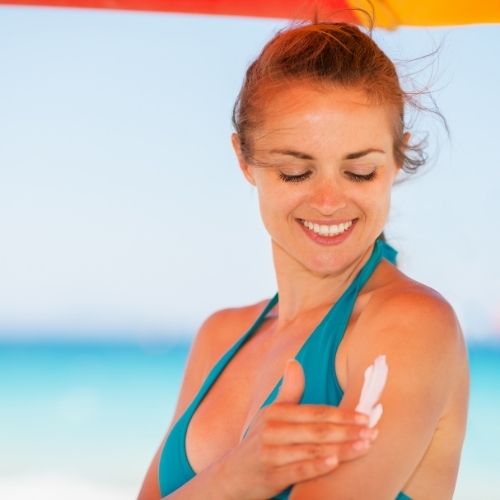
Look for ingredients like Avobenzone and Zinc Oxide. They provide broad-spectrum protection, meaning they block both UVA (ageing rays) and UVB (burning rays).
Why reapply? Sunscreen wears off with sweat and exposure, so reapply every 2–3 hours if you’re outdoors.
Tip: Choose a lightweight, non-comedogenic formula so it won’t clog pores in polluted air.
Why it is important: Pollution weakens the skin barrier, making it more vulnerable to UV damage. A good sunscreen acts like an invisible shield.
3. Hyaluronic Acid for Intense Hydration
Pollution and UV rays don’t just age your skin; they dry it out. Dry skin looks dull, emphasises fine lines, and feels tight.
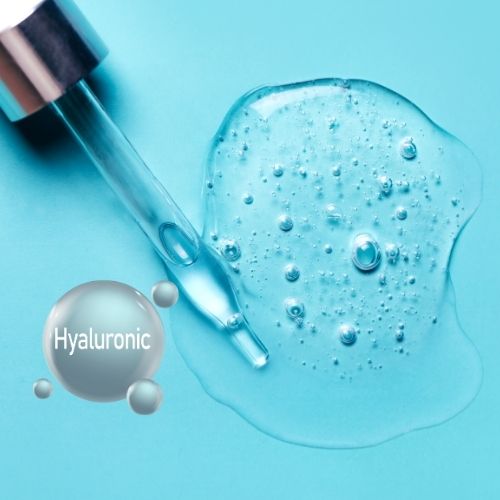
Hyaluronic acid is a game changer because it can hold up to 1,000 times its weight in water!
What it does: Draws moisture into your skin, keeping it
Plump
Soft
Smooth
Where to find it: Serums, moisturisers, and even injectable fillers for advanced care.
Bonus benefit: Improves elasticity and reduces wrinkles over time.
Why it matters: Hydrated skin looks younger and repairs itself faster, making it your best defence against pollution-induced dryness and ageing.
4. Detox with Activated Charcoal Masks
City air is full of microscopic dirt and toxins that settle deep into your pores, leading to
- Blackheads
- Dullness
- Breakouts
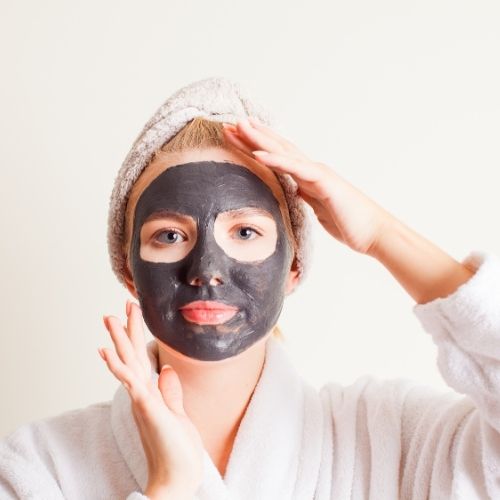
Activated charcoal is like a magnet for these impurities.
How it works: It binds to dirt and oil, clearing out clogged pores.
Bonus benefits: Removes dead skin cells, prevents breakouts, and gives an instant fresh glow.
Tip: Use a charcoal mask once or twice a week; don’t overdo it, as it can dry out the skin.
Why it matters: A weekly detox routine ensures pollutants don’t linger on your skin and cause long-term damage.
5. Stay Hydrated from with in
External care isn’t enough; your skin needs hydration from the inside too.
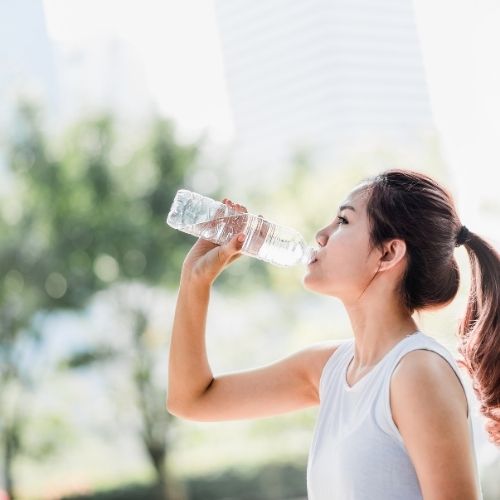
Drinking enough water improves blood flow to the skin and helps flush out toxins.
Benefits: Prevents dryness, keeps skin soft and supple, supports healing, and improves overall glow.
How much? Aim for 8–10 glasses a day, more if you’re in a hot or air-conditioned environment.
Why it matters: Water is the simplest and most natural skincare ingredient, yet the most overlooked.
Final Thoughts
Air pollution is an unavoidable threat to skin health in today’s urban lifestyle, accelerating skin ageing even in young people. The good news? A consistent skincare routine can make a big difference. Using sunscreen daily, applying antioxidant-rich serums, choosing products with hyaluronic acid, staying well-hydrated, and detoxifying with activated charcoal masks can slow down premature ageing. Healthy, glowing skin is not a one-time effort; it’s the result of daily care.
Your skin reflects how well you care for it. Start today, and let your glow speak louder than pollution.
Kumar V, Tanwar N, Goel M, Khan M, Kumar D, Singh G, Mundlia J, Khatri N, Kumar A. Antioxidants for Skin Health. Recent Adv Food Nutr Agric. 2024 Aug 6. doi:10.2174/012772574X311177240710100118. Available from: https://pubmed.ncbi.nlm.nih.gov/39108105/
Beasley DG, Meyer TA. Characterization of the UVA protection provided by avobenzone, zinc oxide, and titanium dioxide in broad-spectrum sunscreen products. Am J Clin Dermatol. 2010 Dec;11(6):413-421. doi:10.2165/11537050-000000000-00000. Available from: https://pubmed.ncbi.nlm.nih.gov/20806994/
Bukhari SNAB, Roswandi NL, Waqas M, Habib H, Hussain F, Khan S, Sohail M, Ramli NA, Thu HE, Hussain Z. Hyaluronic acid, a promising skin rejuvenating biomedicine: A review of recent updates and pre-clinical and clinical investigations on cosmetic and nutricosmetic effects. Int J Biol Macromol. 2018 Dec;120(Pt B):1682-1695. doi:10.1016/j.ijbiomac.2018.09.188. Available from: https://pubmed.ncbi.nlm.nih.gov/30287361/
- Dr Saloni Soni
- Health Guide,Medicine and Diseases,Skin | Dermatology
- 17 August 2025
- 17:00








